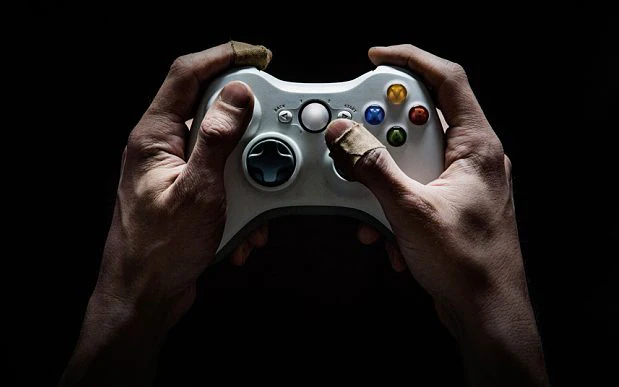Video gaming, like any activity, has both positive and negative aspects depending on the context in which it’s played. Whether video gaming is “bad” for you is influenced by factors such as the type of games played, the amount of time spent playing, and the impact on physical, mental, and social well-being. Here’s a breakdown of the science behind both the for and against arguments on video gaming:
The Benefits of Video Gaming:
1. Cognitive Benefits
- Improved Cognitive Skills: Research has shown that certain video games can improve cognitive functions like problem-solving, multitasking, and memory. For example, puzzle games, action-adventure, and strategy games can help players hone critical thinking and decision-making skills.
- Hand-Eye Coordination: Action and simulation games, particularly those that require quick reactions, can improve hand-eye coordination and fine motor skills.
- Increased Brain Function: Studies have demonstrated that action games can increase the volume of gray matter in the brain, especially in areas associated with visual processing, memory, and motor skills. These games can also help improve spatial awareness and processing speed.
2. Emotional and Psychological Benefits
- Stress Relief: Video gaming can provide a sense of escapism and relaxation. Games, especially those that are engaging or rewarding, can help reduce stress by offering players a distraction from real-world pressures. Many people turn to gaming as a way to unwind after a long day.
- Mood Enhancement: Playing games that you enjoy can trigger the release of dopamine, a neurotransmitter associated with pleasure and reward. This can improve mood and overall emotional well-being.
- Social Interaction: Online multiplayer games can help foster social connections and create communities. Many players form friendships through gaming, and these social interactions can be especially beneficial for individuals who may struggle with in-person socialization.
3. Learning and Creativity
- Learning Opportunities: Certain video games, especially educational ones or those with rich narratives, can teach players about history, science, art, and even language. For example, games like Civilization or SimCity require players to learn about complex systems and management strategies.
- Creativity Boost: Games like Minecraft or The Sims encourage players to design, build, and create within a virtual environment. This can enhance creative thinking and problem-solving skills.
The Negative Aspects of Video Gaming:
1. Addiction and Time Management Issues
- Gaming Addiction: One of the most significant concerns around video gaming is the potential for addiction. Gaming can become an all-consuming activity, leading to excessive screen time. The World Health Organization (WHO) officially recognizes gaming disorder as a mental health condition characterized by impaired control over gaming, prioritizing gaming over other activities, and continuing to play despite negative consequences.
- Reduced Productivity: Spending excessive time on video games can lead to neglect of work, school, or other important responsibilities. This can affect productivity and personal development, particularly for younger players.
2. Physical Health Concerns
- Sedentary Lifestyle: Extended gaming sessions often involve sitting for long periods, which can contribute to a sedentary lifestyle. Prolonged inactivity is linked to various health issues, such as obesity, cardiovascular problems, and muscle strain.
- Eye Strain: Staring at screens for hours on end can lead to digital eye strain, causing symptoms like dry eyes, headaches, and blurry vision.
- Poor Posture: Long gaming sessions may also lead to poor posture, resulting in back, neck, and shoulder pain, particularly when gamers use improper seating or gaming setups.
3. Mental and Emotional Risks
- Aggression: Some studies suggest that violent video games may increase aggressive behavior, although this remains a highly debated topic. Games that involve violent or high-intensity action could potentially lead to a desensitization to violence, though the connection between gaming and real-world aggression is not conclusive.
- Social Isolation: While online games can provide social connections, excessive gaming can also lead to social isolation. Players may choose virtual interactions over face-to-face conversations, which can negatively affect their social skills and emotional health.
- Mental Health Impact: For some individuals, especially those already dealing with anxiety or depression, gaming can exacerbate mental health issues. Gaming as a form of avoidance can worsen feelings of isolation or contribute to unhealthy escapism.
4. Impaired Sleep
- Disrupted Sleep Patterns: Playing games late into the night, especially those that are stimulating or involve bright screens, can interfere with sleep. The blue light emitted by screens can suppress melatonin production, a hormone that helps regulate sleep. This can lead to sleep deprivation, which negatively affects cognitive function and mood.
The Bottom Line:
Video gaming is not inherently bad for you, but like many activities, its impact depends on how it is approached:
- Moderation is Key: Like any form of entertainment, moderation is essential. Healthy gaming habits—such as taking breaks, balancing gaming with physical activity, and ensuring it doesn’t interfere with responsibilities—can help minimize negative effects.
- Choosing the Right Games: Not all games are the same. Games that are mentally stimulating, creative, or relaxing can offer cognitive and emotional benefits. On the other hand, games that promote addiction, excessive violence, or unhealthy behaviors should be avoided or limited.
- Balance with Other Activities: It’s important to balance gaming with other physical and social activities to ensure a well-rounded lifestyle.
In conclusion, video gaming has the potential to both enhance and harm aspects of your life. The key is maintaining a healthy balance and making intentional choices about what and how much you play.

